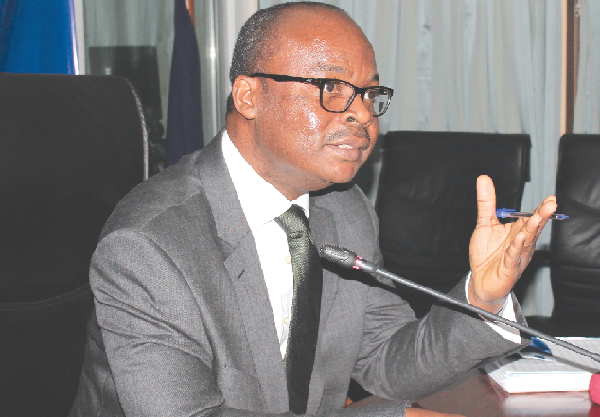
Fold-up of banks: A national concern
Before the introduction of currencies, banks never existed in the world. Banking is believed to have been domesticated from the Ancient Jewish times when the word ‘bank’ was carved out of an Italian word “Banco”— meaning long bench.
This was significant in the use of long benches in providing services such as currency exchange and loan lending in crowded areas such as markets and preaching halls.
However, the Romans were the first to establish the first banking hall in the world by moving the services from preaching halls to formalised distinct buildings.
Commercial banks
The establishment of commercial banks in West Africa was first in Nigeria and later in Ghana during the 18th century. After the attainment of independence in 1957, a legislative instrument was passed to split the Bank of the Gold Coast into two streams namely: Bank of Ghana (BoG) and Ghana Commercial Bank (GCB).
These two banks had different mandates: the BoG was to be the bank of issue and regulator of the country’s currency, whereas the GCB was to manage the accounts of state-owned corporations.
Over the past decades, the banking sector of the country has seen a massive emergence of several banks, but this has become very profound within the last two decades.
However, these emerging banks have gradually been folding up in recent times.
The merging of banks
Usually, the merging of banks involves the coming together of two or three banks, but recently, the BoG has merged five different local banks due to several challenges facing these banks. Probably, this can be considered as a serious precedence in our banking industry.
It is a fact that the regulator of the banking sector has increased the minimum capital requirement for banks to GH¢400 million.
If these banks are folding up due to their inability to reach the minimum capital requirement, then all things being equal, with a simple mathematical analysis, each of these banks was operating with a minimum capital of GH¢80 million which did not even meet the previous minimum capital requirement of GH¢120 million and the current minimum capital requirement of GH¢400 million.
Therefore there is no line of argument that the minimum capital requirement is huge on the banks; hence, the folding up.
Corporate governance
The non-performance of these banks can be hugely attributed to the issue of poor corporate governance.
These banks are characterised by management and staff with high academic accolades.
However, there is an abysmal performance. What has been happening to the daily reports and long board and management meetings?
It can be deduced that these meetings have yielded nothing.
Moreover, the huge salaries, allowances, luxurious vehicles and mansions have been paid by stakeholders in vain since these employees could not put in proper measures to help the banks survive.
Logically, how could interest rates on investment packages be kept so high while the banks were not having enough capital to sustain themselves?
How could you be giving out loans while your non-performing loan rate is high?
Is it that our businesses do not experience the application of the knowledge we acquire from our educational system?
This is gradually becoming a complete shame to our educational system. Maybe it might be mere wickedness, dishonesty and selfishness on the part of management.
Non-compliance and fraud
Institutions in the country have regulatory bodies bound by laws and regulations.
The regulator for the banking industry is the BoG.
These banks obtained their licence for operation as banks from the BoG.
Is due diligence done before banks are granted the licence to operate?
Perhaps, this is not the case because the regulatory body is now getting to know that some of the banks obtained their licence through foul means.
This is highly unacceptable and unethical on the part of the managers of the industry.
Interestingly, with the exception of Unibank which obtained its licence within the past 20 years, all the other banks have less than 10 years of licence operation.
Are there corruption and cover-ups in the banking industry?
Social cost
It is an irrefutable fact that this fold-up of banks will have repercussions on our economy.
Many employees are going to be laid off, corporate social responsibilities of these banks will come to a halt and contractors and suppliers of these banks will lose contracts.
But we should put Ghana first because comparatively, few individuals are going to be affected now as compared to the masses that will be affected if these fraudulent banks are allowed to operate.
Indeed, it is good news that customers of these banks have their deposits safe. I am confident that there are some sorts of connivance within the banking industry.
Therefore, criminal charges should be levelled against the management, board and directors of these banks, not leaving the management of the regulator of the industry during the acquisition of those fraudulent licences.
However, more banks are likely to foldup within the coming months. I believe this issue will not see a political twist, but become a national concern to all parties.
Better policies should be put in place and the regulator firm on its regulations to ensure restoration and stability to our financial system and economy.

 Click the link to read your copy.
Click the link to read your copy.